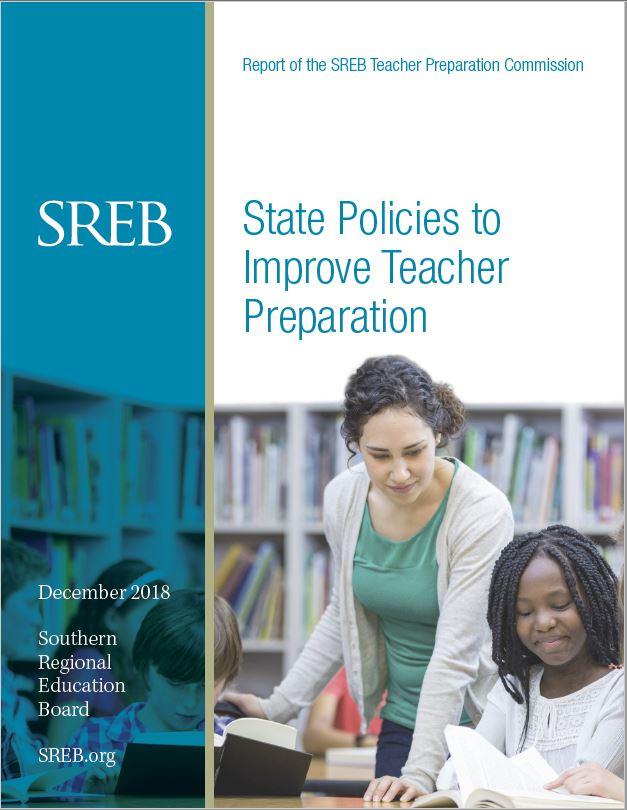Making Sense of Changes to Teacher Preparation and Licensure
SREB state legislators introduced over 4,600 education bills in 2019 regular sessions. At least 850 of these bills will become law, with roughly one hundred this year relating to teachers and principals. Here’s how seven notable bills align with SREB’s Teacher Preparation Commission recommendations.
Preparing Candidates for Success
Four states made changes that, while not radically altering state strategies, allow for innovation and experimentation, which is consistent with the Commission’s recommendations.
Maryland Senate Bill 1030, which creates the Teacher Collaborative Grant Program, requires districts to partner with preparation programs to improve teacher quality by developing a 21st-century practicum experience. Grant partners must include at least one school board, teacher preparation program, and employee representative.
Oklahoma House Bill 1781 removes a statutory provision stating that teacher internships are non-salaried positions. This allows districts and preparation programs to think about how to improve clinical placements and teacher recruitment efforts by providing stipends or paraprofessional-level salaries for teacher candidates.
Arkansas Senate Bill 153 and Texas House Bill 3 direct educator preparation programs to deliver instruction on the science of teaching and more rigorous reading for candidates preparing for elementary education certification.
Licensing Teachers
Legislatures in three states opted to make significant changes to certification pathways and license types — addressing the need for innovation but including quality-control procedures to decrease the odds that programs and districts implement ineffective practices.
North Carolina Senate Bill 219 creates a new credential called the limited license, which provides teachers with more time to meet state testing requirements. Eligible teachers are (1) those holding the initial professional license who have not successfully passed licensure assessments and (2) out-of-state teachers who need more time to complete the requirements for a renewable professional license.
Local education agencies must request the limited license on behalf of teachers, and the license remains valid only if teachers remain employed in the requesting district or charter school. The school principal and district superintendent must also submit an affidavit attesting that the teacher is effective.
Oklahoma Senate Bill 217 directs the state department of education to identify providers to implement new and innovative certification pathways on a pilot basis.
Virginia House Bill 2486 requires the state board of education to develop guidelines that permit school boards, or organizations sponsored by a board, to operate an alternative route to teacher licensure. The bill directs approved districts to describe how they would implement alternative requirements.
Small Changes Matter
As SREB states consider new preparation models and pathways, they should consider the Commission’s recommendation that all teacher candidates meet the same high bar for initial licensure, regardless of the preparation route. These bills support local efforts while ensuring that new programs and initiatives do not compromise quality. Small changes like allowing teacher candidates to receive stipends or paraprofessional salaries during internship could improve district recruitment. Removing administrative or financial barriers could create a more suitable environment for programs and districts to innovate and experiment.


